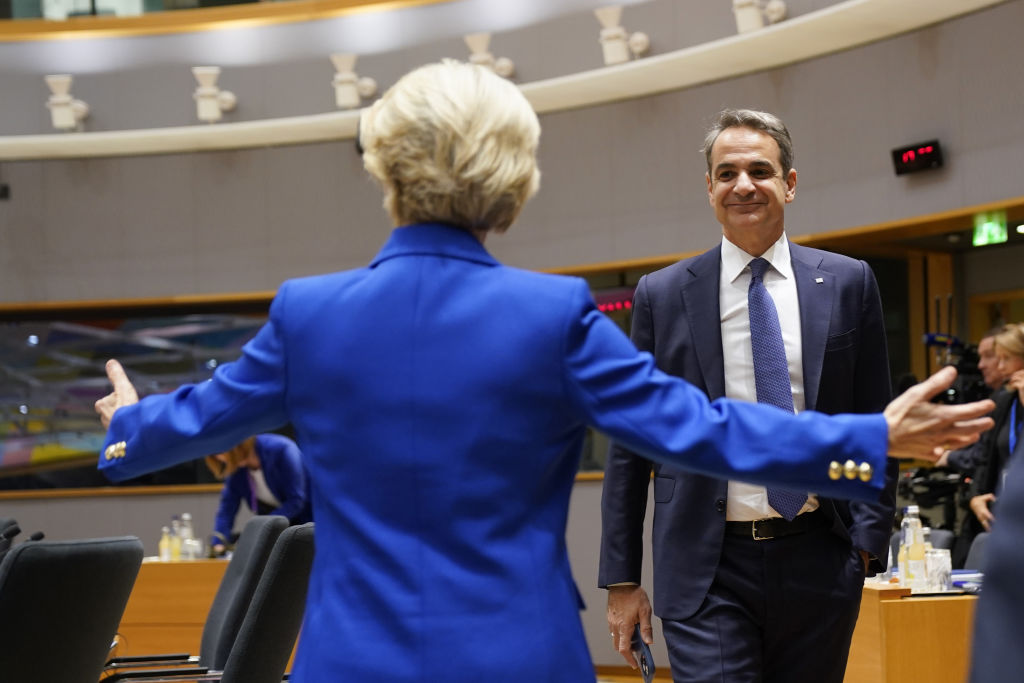Prime Minister Donald Tusk does not back down. On June 1 his candidate for president Rafal Trzaskowski lost the vote to the Conservative Karol Nawrocki. Nobody doubted Nawrocki’s victory. Even the observers from the Organization for Security and Co-operation in Europe said the election was “competitive and well-managed”.
Nawrocki won, Trzaskowski lost. But Tusk is now trying to block Nawrocki taking office. He won’t back down. Tusk is pitching accusations of electoral fraud – no evidence, just accusations — at Nawrocki. The fight is getting dirty.
Even during the election, Tusk was trying to sink Nawrocki, going as far as defamation and media manipulation. Perhaps sensing the left-liberal candidate was going to lose anyway, Tusk’s ruling coalition tried to pre-rig the post-election legal process. They tried to force through an ad hoc legislative change to alter the composition of the Supreme Court, which sounds shocking in itself. The goal was to transfer the adjudication of electoral disputes to judges who were loyal to the Tusk regime —judges appointed during the communist era and known for rulings against anti-communist dissidents.
In other words, Tusk was getting his political troops in order in case his candidate lost the election. Which he did.
Compounding this, investigative reporting revealed disturbing connections between foreign actors and the left-liberal candidate’s campaign during the campaign, suggesting illicit overseas financing disguised as “civic awareness” campaigns. Among the entities implicated were organisations linked to George Soros’s network and affiliates of former US President Barack Obama.
Why is Tusk risking such a dirty fight? The president of Poland holds far more than ceremonial duties. In Poland, the president holds veto power that can only be overridden by a three-fifth majority in parliament—a threshold Tusk’s coalition does not meet. The governing bloc had hoped that a compliant left-liberal president would retroactively legitimise the unlawful actions by the Tusk government of the past year—such as the illegal takeover of public media and the judiciary—and open the door to full-scale ideological restructuring of the Polish state along left-liberal lines. Nawrocki’s victory has upended these plans, making further governance by Tusk increasingly unviable.
In response, the ruling camp is now seeking to block Karol Nawrocki from assuming office. They launched a coordinated disinformation campaign alleging electoral fraud—ironically, allegedly committed by the very opposition under politically motivated prosecution—based on manipulated statistical analysis and minor, routine counting errors. These errors, which occur in every democratic election, were isolated to a few polling stations (out of over 30,000) and benefitted both candidates.
The Attorney General—acting through a prosecution service seized in violation of legal norms—even attempted to interfere physically with the operations of the Supreme Court. Citing ongoing investigations as a pretext, prosecutors sought to seize documents and suspend the court’s work. This was widely viewed as an effort to block the court from certifying the election results on time and thereby prevent Nawrocki from taking office. Such a manoeuvre would have amounted to a constitutional coup d’état. According to credible reports, a deputy prosecutor general refused to carry out the order.
Additionally, media reports indicated that far-left militant groups had planned to storm the Supreme Court building during mass protests to disrupt proceedings. The plan collapsed when ten times as many conservative demonstrators arrived on site, making it impossible for state-controlled security services to execute the provocation without triggering massive public backlash.
With those efforts thwarted, the government has shifted to attacking the legitimacy of the Supreme Court chamber responsible for validating the election. Their arguments about the chamber’s alleged unconstitutionality are purely rhetorical and politically driven.
The Constitutional Tribunal confirmed the chamber’s legality years ago, and no European court has ever questioned the legal status of the chamber. Nor could they: any such attempt would be ultra vires for two key reasons. First, the European Union has no competence to assess the constitutional organs of member states. Second, electoral matters resolved by the Supreme Court are not matters falling within the scope of the administration of justice—and only such matters, and only insofar as they fall within the scope of European law, fall under the jurisdiction of the Court of Justice of the European Union.
According to the Polish Constitution, the president assumes office upon taking the oath before the National Assembly (composed of both the Sejm and the Senate), which must be convened by the Speaker of the Sejm. The next step, therefore, will likely involve mounting pressure on the Speaker—who is a member of a party within the ruling coalition—not to convene the Assembly, under the pretext of questioning the legality of the Supreme Court chamber that certified the election. However, the Speaker has declared that he will convene the Assembly, fully aware that failure to do so would constitute a constitutional delict and a serious offense against the state.
July 2025 will reveal how strong a hand Tusk still holds—and whether he will succeed in preventing Karol Nawrocki from taking office. Yet public sentiment, the shifting political dynamic, and the unravelling of the lawless regime all suggest that Poland will defend the democratic choice of its citizens and begin its march toward the restoration of the rule of law.
Marcin Romanowski is a Doctor of Law, university lecturer, former Deputy Minister of Justice in the Law and Justice government, currently a Member of the Polish Parliament in exile in Hungary and Director of the Hungarian-Polish Institute of Freedom in Budapest





Persecution, interrogation, arrest: How Tusk runs the Polish presidential election